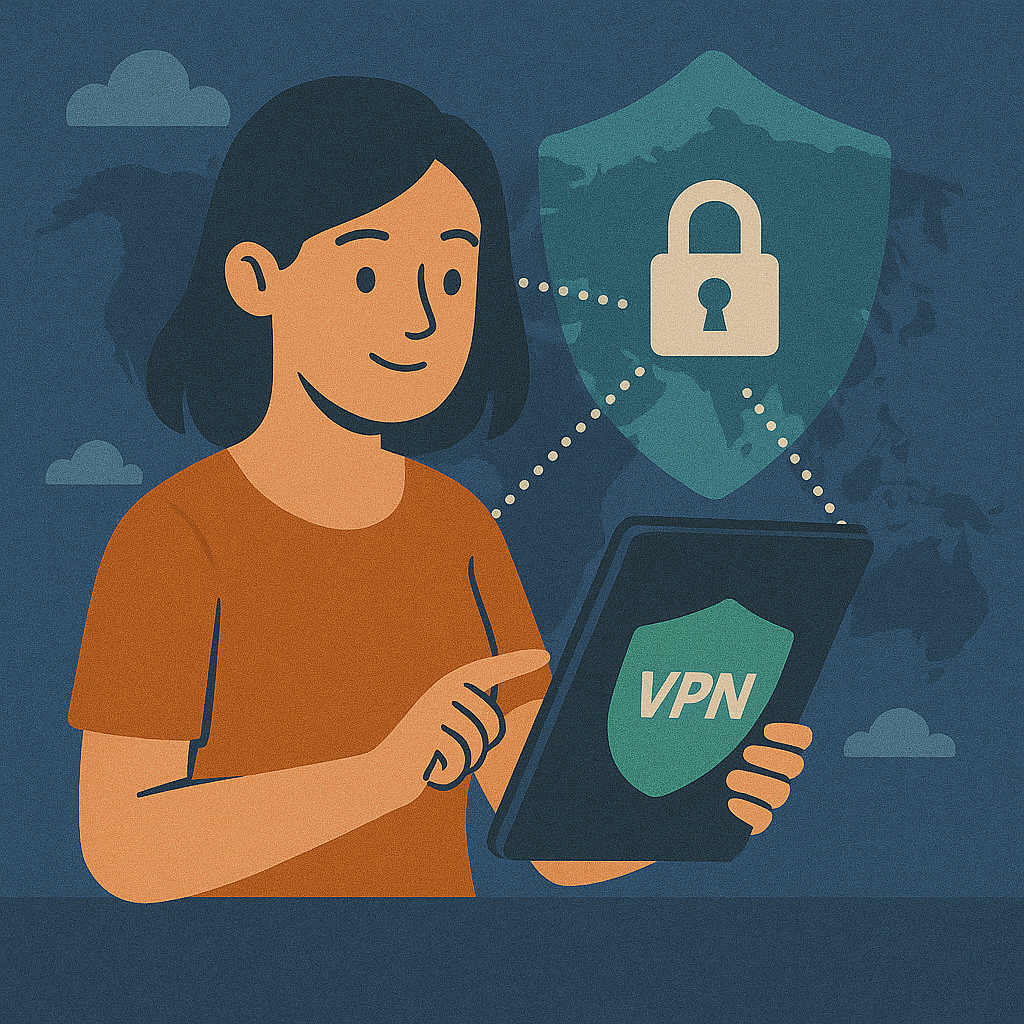
Proxy vs VPN — what’s the difference and which should you use?
Understand privacy, speed and streaming advantages in 2025.
Both proxies and VPNs can hide your IP address and help you bypass geo-blocks, but they work very differently. A VPN encrypts your connection and protects all apps, while a proxy only covers a specific browser or program. Below is everything you need to decide which tool fits your needs in 2025.
Quick answer
Use a VPN when you care about privacy, security and stability (on public Wi-Fi, streaming or torrenting). Use a proxy only for simple tasks like switching IP addresses in a browser for testing or light browsing.
How they work
- Proxy: Routes traffic from one app through a remote server, changing your IP but without encryption.
- VPN: Creates an encrypted tunnel between your device and the VPN server, hiding all activity from ISP and Wi-Fi networks.
Privacy & security
A proxy offers no real encryption. Your ISP and network can still log everything. A VPN encrypts traffic end-to-end and prevents DNS or IPv6 leaks. For maximum safety, choose a provider with a verified no-logs policy and built-in kill switch.
Streaming and geo-blocking
Most proxy servers are quickly blocked by platforms like Netflix or BBC iPlayer. VPN services rotate IP ranges and use obfuscation to bypass these filters. See our dedicated guides: VPN for BBC iPlayer, VPN for Netflix UK and VPN for DAZN.
Speed & performance
Proxies don’t encrypt, so they can be slightly faster in raw latency. VPNs add minimal overhead, especially using modern protocols like WireGuard or NordLynx. You can verify results with a VPN speed test.
When a proxy is enough
If you only need to change your apparent location for one browser window or a quick price check, a proxy can do the job. It’s fine for light tasks, SEO checks or casual surfing without sensitive logins. Never use it for banking, work accounts or Wi-Fi in public places.
When you should use a VPN
- Public Wi-Fi protection — encrypts everything on open networks; see VPN for Wi-Fi security.
- Streaming libraries — unlocks regional content reliably.
- Torrenting and P2P — adds encryption and hides your IP; learn more in safe P2P guide.
- Remote work — secures connections to company servers.
- Gaming protection — reduces ping spikes and DDoS risk.
- Everyday privacy — prevents ISP tracking and profiling.
Setup & ease of use
Proxies need manual configuration per app. VPN apps work system-wide on Windows, macOS, Android and iOS. You can also install a VPN directly on your router to protect all devices — see VPN on router.
Costs and trust
Free proxy servers often log your data or inject ads. Free VPNs also exist but come with limits and privacy concerns. Stick to trusted providers with audited infrastructure and transparent ownership like NordVPN or Surfshark.
Risks of using free proxies
- Operators may log and resell traffic.
- No encryption means passwords can be exposed.
- DNS requests often leak your real location.
- Injected ads or malware scripts are common on public proxy lists.
Essential VPN features in 2025
- WireGuard / NordLynx protocol for speed.
- Kill switch to block traffic if VPN drops.
- DNS & IPv6 leak protection (check your VPN here).
- Split tunneling for flexibility — learn how.
- No-logs audited policy for privacy assurance.
FAQ
Is a proxy as secure as a VPN?
No. Proxies lack encryption and system-wide protection. VPNs secure all traffic and prevent leaks.
Will a VPN slow down my internet?
Slightly, but modern protocols like WireGuard keep speed loss minimal. Run a speed test.
Which is better for streaming?
Always VPN. Streaming services detect and block proxy IPs, while VPN providers refresh their servers regularly.
Can I use proxy and VPN together?
Yes technically, but it rarely adds benefit and can complicate routing. A secure VPN alone is sufficient.
